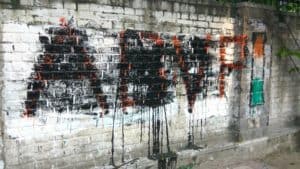The National Green Tribune (NGT) has issued a warning to the University of Delhi (DU) in particular regarding non-compliance with the tribunal.
The National Green Tribune (NGT), having failed to make a mark with words, resorted to action on Wednesday issuing a warning to the University of Delhi (DU), the University Grants Commission (UGC) and the Delhi University Students’ Union (DUSU) regarding the wastage of paper during the polls this year.
A plea was filed by Nithin Chandran, a third year law student in DU when he was flabbergasted by the modus operandi of campaigning through the humongous wastage of paper. The plea read-“On every election, tonnes of paper are wasted for canvassing by the candidates and their supporters. Wherein, there is no accountability for usage of paper and neither there is any norm or procedure for re-cycling of this waste paper”. Relying upon the report published by the TIMES OF INDIA, the NGT was informed of the non-compliance of its order on Tuesday by the counsels of the law student- Piyush Singh and Aditya Parolia. The bench consisted of the NGT Chairperson Justice Swatanter Kumar and B S Sajwan.
The conduct of the elections is based on the recommendations of the Lyngdoh Committee to be implemented from the year 2006 by the order of the Supreme Court which stated- “No candidate shall be permitted to make use of printed posters, printed pamphlets, or any other printed material for the purpose of canvassing”. “Candidates may only utilize hand- made posters at certain places in the campus, which shall be notified in advance by the election commission/university authority”.
The NGT has thereby, issued a warning to the DU students of rusticating if caught in action. Under section 26 of the NGT Act 2010, the maximum punishment if found guilty of contempt of the orders, is three years’ of imprisonment and a fine of Rs 10 crores.
Apart from just the art work on the walls as well as the premises of the campus; it becomes imperative to note that the littered papers are not disposed of properly or re-cycled, hence, leaving an imprint of the elections held every year. On the contrary, the Lyngdoh Committee states- “All the candidates shall be jointly responsible for ensuring the cleaning up of the polling area within 48 hours of the conclusion of polling”.
According to reports, while the next hearing is scheduled for the 18th of this month; the DUSU polls are ahead on the 12th. With all of this happening; we have to watch out for the big day and the probable last minute changes that the manifestos of the several parties might suffer.
Shrija Ganguly














